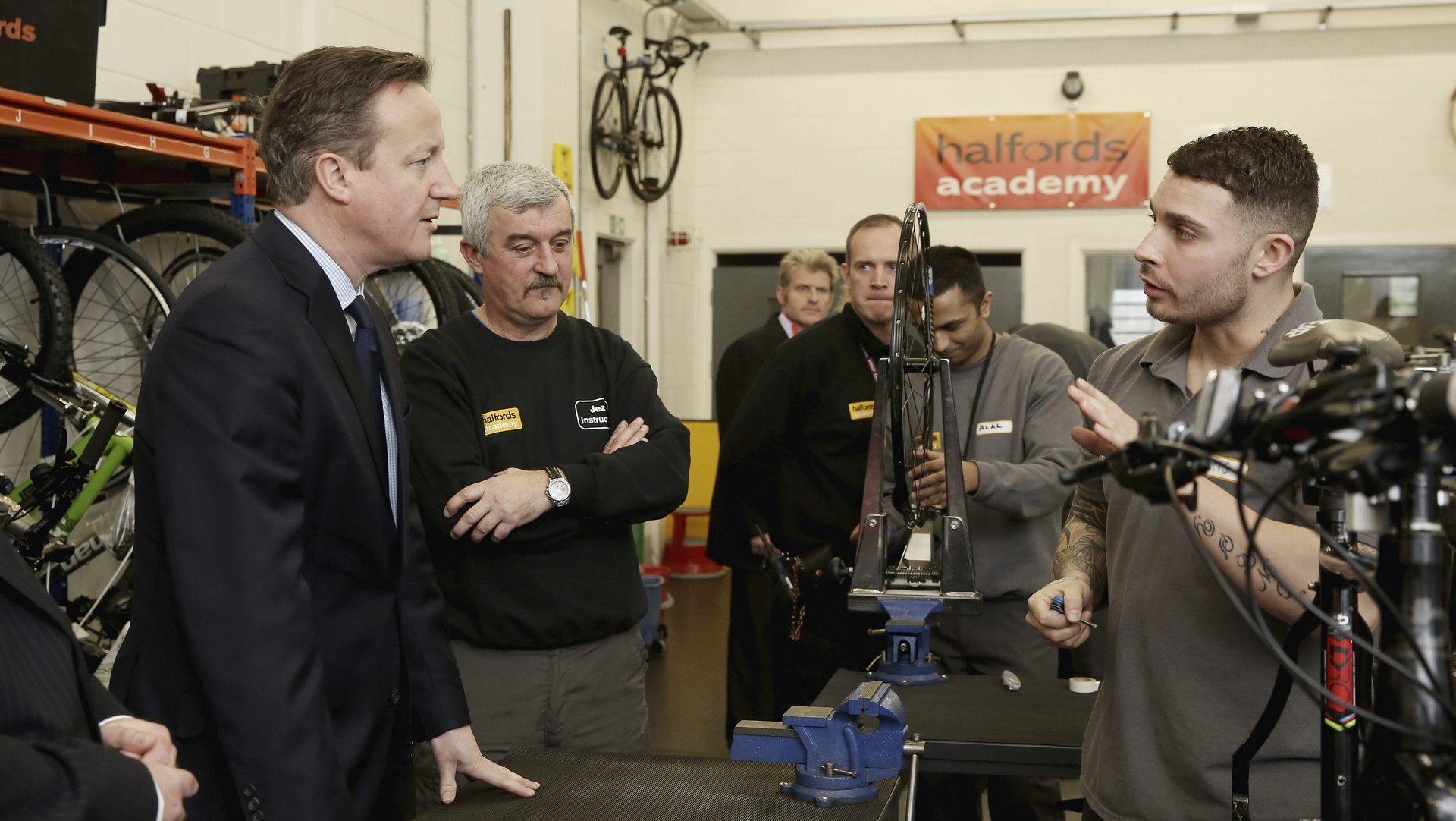Turning prisoners into entrepreneurs would save the UK £1.4 billion annually
What if, instead of lamenting the high unemployment rates for people released from prison, society gave ex-offenders the chance to start their own businesses?


What if, instead of lamenting the high unemployment rates for people released from prison, society gave ex-offenders the chance to start their own businesses?
A new report from the Centre for Entrepreneurs (CFE) think tank, suggests that the UK, whose prison population has more than doubled since the 1990s, would save as much as £1.4 billion every year if it turned its former prisoners in to entrepreneurs.
England and Wales incarcerate a larger chunk of their population than any country in Western Europe. And many don’t stay out of jail once released: 26% of all offenders are recidivists, and the rate jumps to 60% for those who have served short sentences.
The system focuses on security and deterrence instead of rehabilitation and education. Because many employers don’t want to hire people with criminal records, only about 26% of UK prisoners find a job upon release. With no means to support themselves, they often go back to crime – and eventually jail.
“A prison system that fails to improve the life chances of its prisoners is unsustainable,” the reports authors’ say. They estimate that the UK spends £4.5 billion a year on reincarcerating former prisoners, and related costs. “This is a colossal waste of human talent; instead of gaining skills, finding jobs or becoming entrepreneurs – thereby contributing positively to the economy – those who reoffend generate additional costs borne by all of society.”
Self-employment could help. Existing programs that help prisoners develop their business ideas, the most well-known of which is the Texas Prison Entrepreneurship Program, or similar projects in Germany and the UK, have shown significant success. The Texas program results in a three-year recidivism rate of 7%, compared to the 60% nationwide rate. Its graduates have set up over 200 businesses; some generate as much as $1 million in annual revenue.
CFE estimates that with appropriate training and mentoring, some of the 75,000 people who leave prison every year in the UK could start up to 11,000 new businesses, yielding savings of £1.4 billion, all at the cost of £82 million – a 17-fold return on investment. CFE proposes allocating government funding to entrepreneurship programs across the UK.
Of course, there’s a number of barriers for would-be entrepreneurs upon their release from prison, including housing, health and addiction issues as well as lack of access to banking. However, the report argues that some prisoners – especially those who were involved in organized or financial crime – have certain entrepreneurial traits, such as unconventional thinking and a preference for autonomy, that could help them break out of the recidivism cycle.
The UK prisons minister didn’t comment on the proposal when asked by The Daily Telegraph, but the Conservative party has demonstrated some commitment toward reforming the country’s criminal justice system.